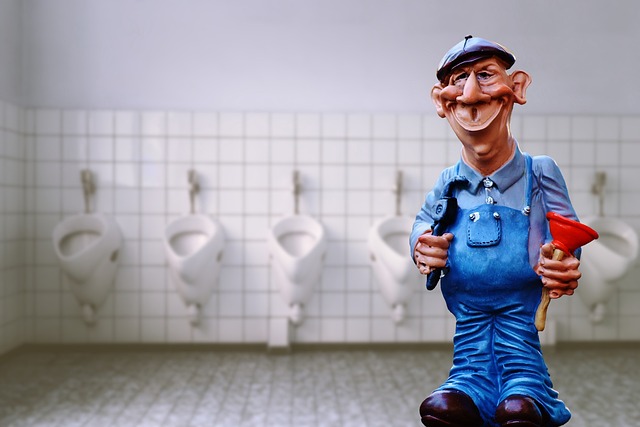While DIY plumbing solutions may seem appealing for minor issues, they carry significant risks like misdiagnosis, pipe damage, and safety hazards, leading to costly repairs. Professional plumbers offer specialized knowledge, precise troubleshooting, and tailored advice, ensuring long-lasting plumbing systems and avoiding DIY mistakes. For complex tasks like leaky faucets or corroded pipes, professionals are indispensable, preventing simple fixes from turning into major crises. Comparing DIY vs. professional plumbing services highlights the importance of seeking expert help for intricate jobs to avoid damage and recurrent problems.
“Tired of that persistent leaky faucet or a clogged drain giving you fits? You’re not alone. Many homeowners attempt plumbing repairs themselves, hoping for a quick fix. However, what starts as a manageable project can quickly turn into a DIY nightmare. From faulty supplies to unforeseen damage, these real-life stories highlight common pitfalls and the importance of understanding when to call in a professional plumber. Let’s explore the difference between DIY and professional plumbing services, ensuring you make informed decisions for your home.”
- DIY Plumbing Misadventures: Common Pitfalls and Lessons Learned
- The Pros and Cons of Taking on Plumbing Projects Yourself
- When Do Plumbing Issues Require Professional Expertise? Real-Life Case Studies
DIY Plumbing Misadventures: Common Pitfalls and Lessons Learned

Many homeowners, faced with leaky faucets or clogged drains, opt for DIY plumbing solutions, hoping to save costs and avoid calling a pro. While do-it-yourself (DIY) projects can be satisfying, plumbing repairs are not always as straightforward as they seem. Common pitfalls include misdiagnosing the problem, damaging existing pipes or fixtures, and failing to follow safety guidelines, leading to bigger issues down the line.
Lessons learned from these DIY plumbing misadventures highlight the importance of calling a professional plumber. A pro can offer expertise in complex troubleshooting, precise repairs, and expert advice tailored to each unique situation. By acknowledging the limitations of DIY and trusting experts for specialized work, homeowners can avoid costly mistakes and ensure long-lasting plumbing systems.
The Pros and Cons of Taking on Plumbing Projects Yourself

Taking on plumbing projects yourself can be a way to save money and learn new skills, but it’s not always the best approach. While DIY enthusiasts may feel a sense of accomplishment from tackling tasks themselves, there are potential pitfalls when it comes to plumbing. One of the main advantages is the cost savings—hiring a professional plumber can be expensive, so doing it yourself might seem like a logical choice. However, improper installations or repairs can lead to further damage and costly repairs down the line.
Plumbing work requires specific tools and knowledge to ensure everything is done correctly and safely. A DIY approach may result in leaky pipes, clogged drains, or even structural damage if not handled properly. Professionals have the expertise to identify complex issues and offer long-lasting solutions. While it might be tempting to think that a quick YouTube tutorial can equip you with all the necessary skills, nothing beats the experience and training that licensed plumbers receive.
When Do Plumbing Issues Require Professional Expertise? Real-Life Case Studies

Many homeowners attempt to tackle plumbing issues with a “DIY” approach, believing it saves costs and gives them control over their home repairs. However, there are certain situations where a DIY project can quickly turn into a nightmare, highlighting the importance of knowing when to seek professional expertise. Plumbing systems are intricate networks that require specialized knowledge and tools to ensure safe and effective repairs.
Real-life case studies reveal the perils of attempting complex plumbing tasks without proper training. For instance, a homeowner trying to replace a leaky faucet might end up damaging surrounding pipes or overtightening fittings, leading to further complications. In another scenario, an amateur plumber may not recognize underlying issues like corroded pipes or faulty valves, resulting in recurrent problems and potentially costly damage. These stories serve as reminders that while DIY plumbing can be for minor, straightforward repairs, more intricate tasks often require the skilled hands of a professional to avoid turning a simple fix into a major crisis.
While DIY plumbing projects can be appealing for those looking to save costs, the real-life experiences shared in this article highlight that some tasks are best left to professionals. The potential risks and complications far outweigh the benefits of attempting these jobs yourself, as evidenced by the common pitfalls mentioned under DIY Plumbing Misadventures. Understanding the signs when a plumbing issue requires professional expertise is crucial. Comparing DIY vs. professional plumbing services, it becomes evident that while DIY can be cost-effective for minor repairs, complex or recurring issues demand the skills and tools only a licensed plumber can provide. Trusting these tasks to experts ensures not just effective problem-solving but also prevents further damage and costly repairs in the long run.
